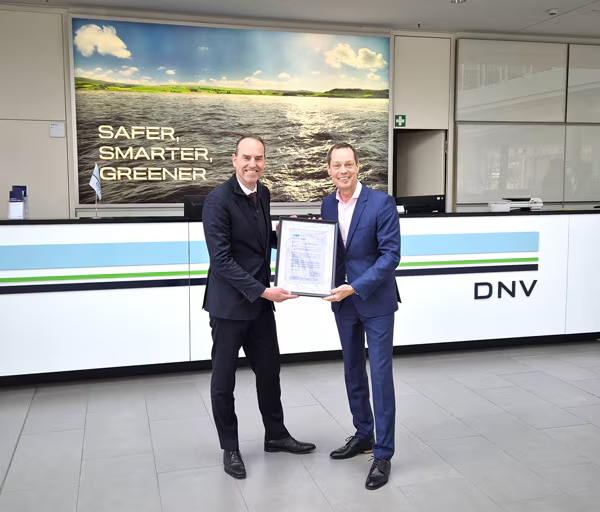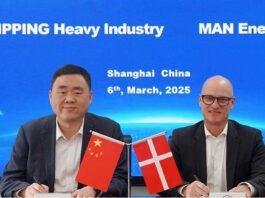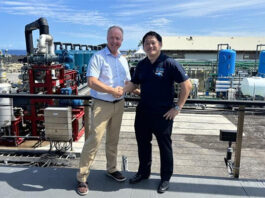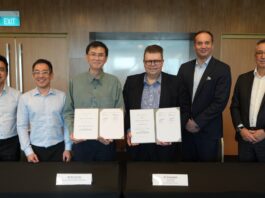
Japan’s Yanmar Power Technology (Yanmar PT) has obtained Approval in Principle from DNV for its GH320FC hydrogen fuel cell system, marking a significant advancement in hydrogen-powered shipping.
The GH320FC power system has a modular and scalable design that allows for multiples fuel cells to be configured in parallel. It is intended to support a broad spectrum of vessel classes, from port service tugs to inland cargo ships and coastal ferries, offering shipowners a high degree of flexibility. The system’s architecture allows for scalable power delivery based on vessel size and mission profile, features that are highly valued in sectors for which operational loads can vary widely.
Yanmar’s solution is well suited for the hard-to-electrify segment of short-sea shipping, where battery systems often struggle with either energy density or operational flexibility. Coastal and inland operators navigating Europe’s proliferating low-emissions zones represent a promising early market for Yanmar to target.
‘This is a significant milestone in bringing our hydrogen fuel cell solutions to European customer’, said Masaru Hirose, General Manager of Large Power Products at Yanmar PT. ‘Drawing on our experience with commercial hydrogen deployments in Japan, we’re confident this platform can support Europe’s decarbonisation goals.’
Yanmar has received robust support from the Japanese government. Earlier in 2025, the company’s plans for hydrogen engine and fuel cell production were greenlit under Japan’s Zero Emission Ship Construction Promotion Project. This initiative, led by the Ministry of the Environment and the Ministry of Land, Infrastructure, Transport and Tourism, is anticipated to generate over ¥120 billion (approximately US$780 million) for the development of hydrogen and ammonia vessels.
DNV has established itself as a key backer of hydrogen-powered maritime technology projects. Olaf Drews, Head of Engines & Pressurized Equipment, DNV Maritime, commented on the AiP award: ‘As the maritime industry pushes forward towards decarbonization, we need to examine every option that offers full zero-emission operations. And fuel cells in combination with clean renewably produced fuels are a highly efficient and scalable power solution to meet this challenge.’
However, despite growing policy momentum and technological progress, hydrogen propulsion faces significant obstacles in infrastructure, crew training, and cost competitiveness. The availability of fuel, particularly green hydrogen, is inconsistent across different regions, and the storage of hydrogen onboard remains challenging in space-constrained hulls. Incremental advancements in hydrogen-powered vessels, such as Yanmar’s GH320FC system, are indicative of the ongoing expansion of hydrogen utilisation in the maritime sector.






